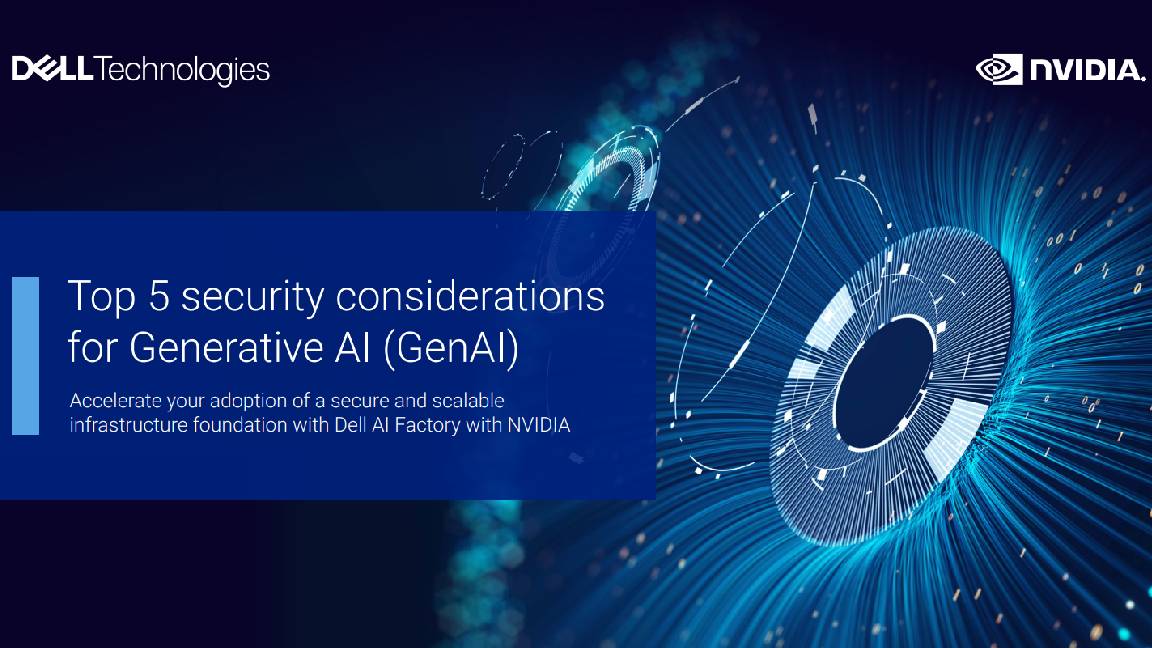In partnership with Huawei
What’s the role of AI in large enterprises?
From customer experience to software development, AI is becoming increasingly essential to efficiency in larger companies


Speed is an essential element of success in running a business. The quicker a firm can get a new product to market or resolve a customer complaint, the more time there is available for the next project.
Of course, quality is still vital – there’s no sense in a business rushing out a marketing campaign to support a new product only for it to be littered with errors. That’s why staff always need to be working to the highest standards to ensure speed is matched with quality.
This can be a particularly complex task for larger enterprises, in which thousands of employees and contractors must work toward this goal. In many ways, that’s where the draw of AI lies and why most businesses are looking to the technology.
Generative AI has created a particular buzz over the last two years as the rise of OpenAI’s ChatGPT led to a plethora of enterprise-focused tools.
There’s a lot of hype and businesses are still working out how they can incorporate AI into business environments while keeping a close eye on ROI.
While the role of AI in large enterprises is manifold, though most of its uses fall into three broader categories:
- Customer experience
- Employee Experience
- Development
Customer experience
Every business needs to deliver a product or service to its customers. How well they do this, from the customer's perspective, will define a big portion of a business's success.
Sign up today and you will receive a free copy of our Future Focus 2025 report - the leading guidance on AI, cybersecurity and other IT challenges as per 700+ senior executives
An enterprise may have hundreds of thousands of customers interacting with its brand daily, many of whom engage in purchases, refunds, or other inquiries that require a response from the company.
Using an AI-powered chatbot can ramp up efficiency in customer experience. By placing an interactive chatbot window on, for example, a firm’s website, customers can ask questions about products or get directed to relevant resources.
A customer support executive at ecommerce personalization platform Rebuy Christian Sokolowski, told ITPro in April 2024 that the firm’s customer satisfaction score (CSAT) went up by an average of 4% after they incorporated a chatbot into their customer service.
There are concerns that enterprises need to address before they go all in on customer-focused AI, though. A 2024 report from Gartner revealed that 64% of surveyed customers would prefer a company not to use AI in its customer services.
A similar report from ServiceNow revealed that 77% of surveyed consumers had resorted to using tips and hacks to bypass AI-powered customer service systems to speak to an actual human.
As Gregor Hofer, CEO of AI software firm Rapport, told ITPro when the ServiceNow report was released though, this is largely a problem with implementation rather than with the underlying AI tool. He said that the key for businesses is to understand that AI should “enhance, not replace” human customer service agents.
In customer experience, then, AI’s role in large enterprises is one of support. Large firms shouldn’t look to slim down the number of customer service staff they have, but rather focus on training them how to make their workflow more efficient with AI.
Employee Experience
AI also plays an important internal role in employee experience. If workers can get their tasks done more quickly with the help of AI then that means overall productivity gains for a firm.
According to Gartner’s latest Hype Cycle for Digital Workplace Applications report, everyday AI – features that are integrated into typical daily activities and workflows – and digital employee experience (DEX) will reach mainstream adoption in less than two years.
“Everyday AI promises to remove digital friction, by helping employees write, research, collaborate, and ideate,” Gartner analyst Matt Cain said. Everyday AI refers to features that are integrated into typical everyday activities and workflows.
Take content generation – employees may spend hours of their day writing emails that all adhere to very similar structures, or creating large amounts of short-form marketing content for social media.
AI can be used to speed up these processes, creating drafts of emails within seconds that staff can then rewrite with added specifics or personalized information.
As is the case when AI is customer-facing, though, there are pitfalls that large enterprises need to avoid when AI is employee-facing. A study from IBM earlier this year reported that nearly two-thirds (61%) of CEOs are pushing too hard on the adoption of generative AI tools. The study fielded responses from CEOs who acknowledged the discomfort from staff.
64% said that their organization must take advantage of the technology despite it outpacing employee's ability to adapt. If AI is to have a role in driving staff efficiency in the enterprise, they must be taught to use the technology as effectively as possible.
Development
Though development ties in with employee experience, it deserves its own examination both due to the number of AI code generation tools now available and the discourse that’s erupted over its effectiveness.
Popular code repository GitHub’s tool, GitHub Copilot, is one of the best known, although Google and AWS both have rival offerings in the form of Gemini Code Assist and Amazon CodeWhisperer, respectively.
AWS CEO Matt Garman even recently stated his thinking that AI code tools could mean “most developers are not coding” within two years, according to leaked audio obtained by Business Insider.
For now, though, AI code assistants are currently a double-edged sword in the enterprise. They help generate code faster, but the quality of that code isn’t always better.
While research from GitHub found that over half (55%) of developers can complete tasks more quickly, research from GitClear found “disconcerting trends for maintainability” and that “writing bad code faster” creates difficulties for subsequent code readers.
The use of AI in development for large enterprises is inevitable – research from Gartner predicted that three-quarters of enterprise software engineers will be using some sort of generative AI code assistant by 2028.
What’s not inevitable is the way AI is incorporated into development in the enterprise. To ensure it creates efficiencies in large companies, executives need to make sure staff know how to use the tools, and that they play an important role.

George Fitzmaurice is a former Staff Writer at ITPro and ChannelPro, with a particular interest in AI regulation, data legislation, and market development. After graduating from the University of Oxford with a degree in English Language and Literature, he undertook an internship at the New Statesman before starting at ITPro. Outside of the office, George is both an aspiring musician and an avid reader.
-
 AWS just quietly increased EC2 Capacity Block prices – here's what you need to know
AWS just quietly increased EC2 Capacity Block prices – here's what you need to knowNews The AWS price increases mean booking GPU capacity in advance just got more expensive
-
 Accenture acquires Faculty, poaches CEO in bid to drive client AI adoption
Accenture acquires Faculty, poaches CEO in bid to drive client AI adoptionNews The Faculty acquisition will help Accenture streamline AI adoption processes
-
 AI-first partnerships: Unlocking scalable growth for business
AI-first partnerships: Unlocking scalable growth for businessIndustry Insights Channel partners play a vital role in facilitating AI adoption, but there's more to offering support than simple integration
-
 How an online B2B resale platform helps handle post-holiday returns
How an online B2B resale platform helps handle post-holiday returnsWhitepaper A buyer's guide for meeting the unprecedented speed and complexity of today's development practices
-
 The State of B2B Recommerce
The State of B2B RecommerceWhitepaper A buyer's guide for meeting the unprecedented speed and complexity of today's development practices
-
 Solving the sustainability problem: Fueling the secondary market with high-value goods
Solving the sustainability problem: Fueling the secondary market with high-value goodsWhitepaper A buyer's guide for meeting the unprecedented speed and complexity of today's development practices
-
 Third-party AI tools are muddying sustainability metrics
Third-party AI tools are muddying sustainability metricsNews The climate impact of AI tools has become an increasingly important conversation at firms
-
 6G: Pioneering a new era of innovation and business value
6G: Pioneering a new era of innovation and business valueSponsored Content Discover how 6G will redefine the wireless industry through innovation, AI integration, and groundbreaking technology to drive new business value
-
 Top five security considerations for Generative AI (Gen AI)
Top five security considerations for Generative AI (Gen AI)whitepaper Protection across AI attack vectors
-
 Prepare for the future now. Achieve greater, secure productivity, using AI with the latest Dell PCs powered by Intel® Core™ Ultra and Copilot
Prepare for the future now. Achieve greater, secure productivity, using AI with the latest Dell PCs powered by Intel® Core™ Ultra and Copilotwhitepaper Protection across AI attack vectors